We work in partnership with local Anglican and like-minded organisations working towards a renewed creation, free of poverty.
Climate Resilience
Our partners and their communities have contributed the least to the impacts of our warming world; however, it is they who continue to alert us to how climate change is increasing poverty and instability in their communities. These communities are some of the least resourced in their response to the climate shocks that are devastating their livelihoods, homes, and lives.
We share God’s vision for a renewed creation, and our faith compels us to persist in championing responses to climate-exacerbated poverty and disasters. There are many ways to participate in a global Anglican Church response to climate justice. Many of our programs have integrated climate-informed initiatives and responses as a primary objective, supporting communities as they build sustainable development pathways in response to climate shocks and the changing environment.
Women’s Equality
‘An empowered woman is one who can make decisions’ Muassite Coordinator of the Abundant Life Program, Mozambique
Women and girls are disproportionately impacted by poverty, discrimination, inequality and abuse. Compelled by God’s mandate of the dignity of all people, we continue to pursue equality for those who are affected by poverty.
Investing in gender equality not only acknowledges that women have fundamental human rights but also improves the economic development and health of their families. Gender equality is woven through all the programs our partners deliver; from health initiatives to saving groups, females are at the centre.
In the communities where we partner in Africa and the Pacific, the Church is an excellent network for change; it has significant influence in the community and is growing in numbers. Together, we used sound theology to work towards equality for women and eliminating gender-based violence. This is starting within the Church and transforming the community. As a result, more women are empowered to lead transformational change in their families and communities.
Disaster Response
Anglican Overseas Aid was first established as a response to Anglican churches around the world seeking help when disasters devastated their communities. With a solid history of responding to emergencies, we have built strong connections that allow us to respond immediately through our global networks and partnerships. If we do not have partners in the affected areas, we utilise the ACT Alliance and CAN DO networks to provide relief such as food, safe drinking water and shelter, as well as support to rebuild their lives and work through the impacts of trauma.
Many of our partners live in countries that are highly vulnerable to extreme weather events. We work with our partners to ensure disaster mitigation and preparedness programs are implemented in their communities to reduce the impacts of the climate disasters they will inevitably continue to face. This is often supported through the use of sound theological teaching, particularly in the Pacific.
Community Development
Community Development is at the heart of our partners’ work. We believe that those living in their community are the best equipped to activate meaningful and lasting change. We believe that every community member has capacities, abilities and ideas that will assist them to achieve their dreams and goals. That is why we work with a strengths-based approach to community development that is theologically informed and solutions oriented.
Our partners work to ensure that the most marginalised have a voice and that their strengths are utilised to build a more inclusive, stronger, sustainable community.
We have projects such as women’s savings groups that support women to come together, develop leadership skills, build livelihoods and save for the future. Much of the money they earn ensures their children can attend school and, as women contribute to the household, they are also given a voice within the home, building a better future for everyone. Our partners also engage male members of the community to become champions of women’s agency, voice and empowerment, ensuring that it is an effective cooperative movement.
Livelihoods
People living in poverty face many obstacles to their livelihoods. Climate shocks have had a devastating impact on subsistence farmers whose crops are needed to feed their families and generate income. For many women, unable to graduate from school and required to stay at home with children, the opportunity to contribute to the household income seems impossible. Those with disabilities often suffer further, sidelined by a society that doesn’t believe they can contribute.
The way our partners work depends on upon the circumstances of the community. For some, when responding to emergencies, cash vouchers are the best way to receive immediate assistance. For others, establishing groups where they are provided with training and resources to work together to earn an income is appropriate. With the changing climate, partners also work with communities on the diversification of their livelihoods to ensure a variety of income streams when droughts and other climate shocks hit.
Health and Education
God works through the Church to bring light to the world: good news, justice and love. Our partners are working as lights in their communities, providing transformative knowledge about health, safety and equality through community-based initiatives.
Preventable health issues can drive people further into poverty as their incomes become sidelined, with the impacts of ill health. Many of our partners work with community members to develop health groups; these health groups provide valuable education on preventing disease and malnutrition. Messaging about the importance of mosquito nets is decreasing rates of malaria in many communities, information on diet is ensuring children are receiving appropriate nutrition, and guidance on reproductive health is allowing parents to control how many children they have, making it easier to provide for their families.
Education on gender-based violence and child safety is resulting in advocacy for the rights of women and children, and more women empowered to lead change in their communities.
Many of our partners are providing training in climate adaptation and resilience, and farmers are learning sustainable ways to operate. The wider communities, including school children and their parents, are learning how to grow food that will be more resilient to the harsh conditions they face.





